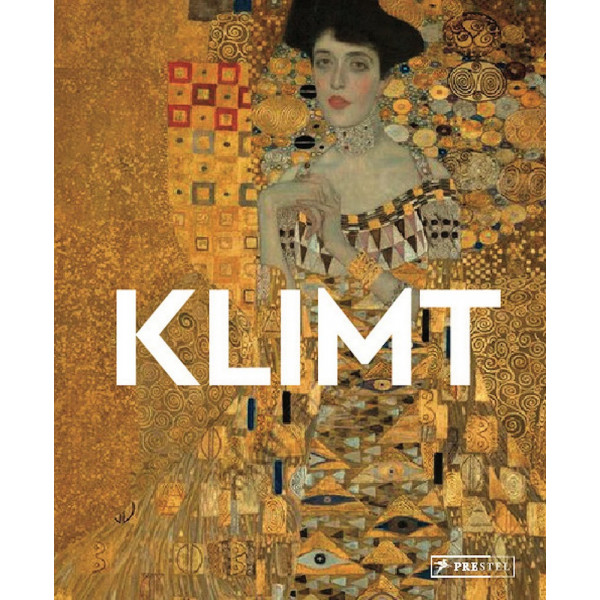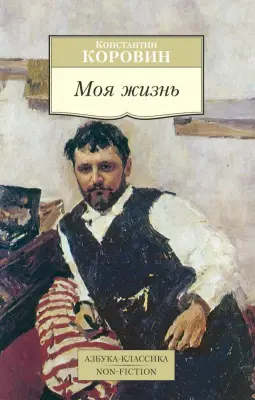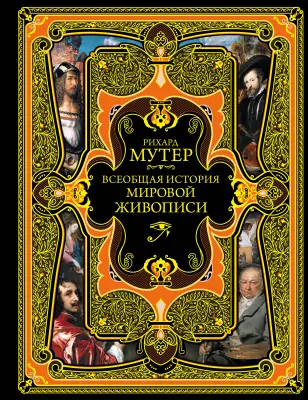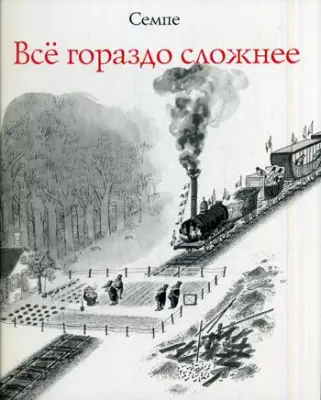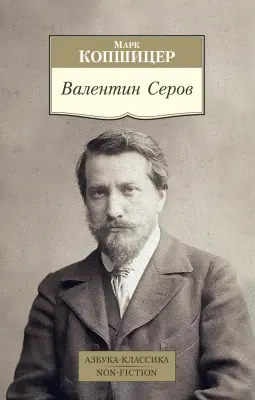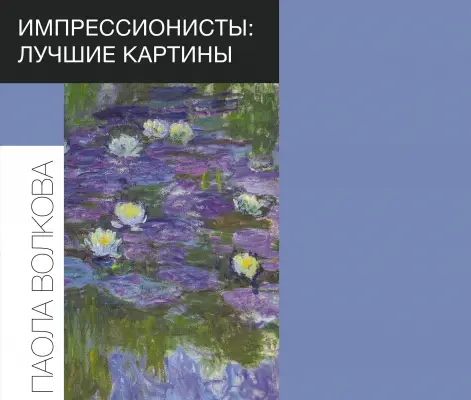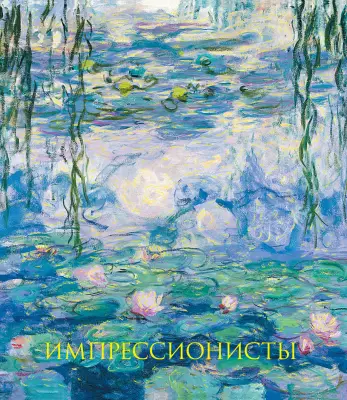+7 (812) 667 84 27
Интернет-магазин
Книги
- Художественная литература
- Физическая культура. Спорт
- Государство и право. Юриспруденция
- История. Исторические науки
- Учебная и методическая школьная литература
- Деловая литература
- Информационные технологии. Вычислительная техника
- Краеведение
- Детская литература
- Филология, лингвистика
- Кулинария.Напитки
- Медицина, Здравоохранение
- Философия
- Дом. Досуг. Красота. Хобби
- Технические науки. Отрасли промышленности и хозяйства
- Естественные науки. Математика
- Педагогика. Воспитание. Образование
- Общественные науки
- Эзотерика. Парапсихология
- Искусство
- Психология
- Военное дело. История войн
- Страноведение. Путешествия
- Букинистика
Товары
Акции
- Блокноты, записные книжки
- Бумага для записей подставки для бумаг для записей - обычные, диспенсеры
- Бумага для оргтехники
- Галантерея для офиса эконом класса
- Демонстрационное оборудование и аксессуары к оборудованию
- Дыроколы
- Ежедневники, планинги
- Клей
- Клейкая лента
- Корректирующие средства
- Маркеры и текстовыделители
- Настольные аксессуары
- Настольные наборы и подставки эконом класса
- Ножи и ножницы
- Офисная техника
- Принадлежности премиум класса
- Скрепки и кнопки
- Степлеры и расходные материалы к ним
- Товары для архивации документов
- Товары для делопроизводства
- Товары для персонализации
- Хозяйственно-бытовые принадлежности
- Штемпельная продукция
- Тетради на кольцах
- Папки для дипломных работ, портфолио
- Обложки для учебных пособий
- Дневники для учебных заведений
- Товары школьные для творчества
- Фломастеры
- Цветные карандаши для детского творчества
- Мел, пастель для детского творчества
- Пластилин для детского творчества, аксессуары для лепки
- Картон, цветная бумага для детского творчества
- Товары для черчения
- Галантерея для учебных заведений
- Наглядные пособия для учебных заведений
- Тетради
- Подарочные наборы для профессиональных художников
- Товары для лепки и скульптурных работ
- Краски для художественных работ
- Эффекты для декора
- Карандаши цветные для художественных работ
- Графические материалы для художественных работ
- Каллиграфия
- Аксессуары для художественных работ
- Бумажно-беловая продукция для художественных работ
- Эксклюзивные издания юмористической литературы
- Эксклюзивные издания детективов
- Эксклюзивные издания поэзии, драматургии
- Эксклюзивные издания прозы
- Эксклюзивные издания фантастики и фэнтези
- Эксклюзивные издания фольклора, эпоса, легенд
- Эксклюзивные издания художественно-документальной прозы, публицистики и мемуаров
- Методические пособия по английскому языку
- Учебники по английскому языку
- ОГЭ и ЕГЭ по английскому языку
- Справочники, учебные пособия и дополнительные материалы по английскому языку
- Справочники, учебные пособия и дополнительные материалы по немецкому языку
- Справочники, учебные пособия и дополнительные материалы по французскому языку
- Прочие иностранные языки для школы
- Учебники по немецкому языку
- Учебники по французскому языку
- Менеджмент: общие вопросы
- Управление проектами
- Управление предприятием, организацией
- Управление цепями поставок. Логистика
- Управление персоналом
- Специальный и отраслевой менеджмент
- Финансовый менеджмент
- Антикризисный и риск-менеджмент
- Тайм-менеджмент
- Делопроизводство. Офис-менеджмент
- Справочная и учебная литература по менеджменту
- История экономики и экономической мысли
- Мировая и региональная экономика
- Экономика России и зарубежных стран
- Экономические системы. Политэкономия
- Специальная и отраслевая экономика
- Экономический анализ и оценка
- Экономика предприятия. Планирование
- Справочная и учебная литература по экономике
- Внешнеэкономическая деятельность. Таможенное регулирование
- СПб и ЛО книги и альбомы на русском языке
- СПб и ЛО книги и альбомы на английском языке
- СПб и ЛО книги и альбомы на немецком языке
- СПб и ЛО книги и альбомы на французском языке
- СПб и ЛО книги и альбомы на испанском языке
- СПб и ЛО книги и альбомы на итальянском языке
- СПб и ЛО книги и альбомы на иностранных языках
- СПБ и ЛО книги и альбомы на китайском языке
- Карты и атласы по СПб и ЛО
- Книги по краеведению
- Эксклюзивные книги и альбомы по СПб и ЛО
- Эпос и фольклор народов России
- Эпос и фольклор народов мира
- Сборники сказок
- Сказки народов мира
- Русские народные сказки
- Сказки отечественных писателей
- Сказки зарубежных писателей
- Книжки-картинки
- Отечественная поэзия
- Зарубежная поэзия
- Зарубежная проза
- Зарубежная фантастика, фэнтези, мистика
- Зарубежные детективы
- Отечественная проза
- Отечественная фантастика, фэнтези, мистика
- Отечественные детективы
- Хрестоматии и произведения школьной программы
- Зарубежные комиксы
- Отечественные комиксы
- Произведения по зарубежным кино- и мультфильмам, играм
- Произведения по отечественным кино- и мультфильмам
- Книги - панорамы
- Новый год
- Детективы и триллеры на английском языке
- Детская литература на английском языке
- Классическая литература на английском языке
- Русская литература и история на английском языке
- Фантастика, фэнтези, мистика на английском языке
- Современная проза на английском языке
- Поэзия на английском языке
- Нон-фикшн на английском языке
- Ветеринарная микробиология и паразитология
- Ветеринарно-санитарный надзор и экспертиза
- Общая и частная патология, диагностика и терапия болезней животных
- Болезни отдельных видов животных. Ветеринарная хирургия
- Иммунизация животных. Ветеринарная профилактика
- Ветеринарная фармакология. Рецептура
- Анатомия животных
+7 (812) 667 84 27
Интернет-магазин
Книги
- Художественная литература
- Физическая культура. Спорт
- Государство и право. Юриспруденция
- История. Исторические науки
- Учебная и методическая школьная литература
- Деловая литература
- Информационные технологии. Вычислительная техника
- Краеведение
- Детская литература
- Филология, лингвистика
- Кулинария.Напитки
- Медицина, Здравоохранение
- Философия
- Дом. Досуг. Красота. Хобби
- Технические науки. Отрасли промышленности и хозяйства
- Естественные науки. Математика
- Педагогика. Воспитание. Образование
- Общественные науки
- Эзотерика. Парапсихология
- Искусство
- Психология
- Военное дело. История войн
- Страноведение. Путешествия
- Букинистика
Товары
Книги
Книги
Книги
Книги
Книги
Книги
Книги
Книги
Книги
Книги
Книги
Книги
Книги
Книги
Книги
Книги
Книги
Книги
Книги
Книги
Книги
- Эксклюзивные издания юмористической литературы
- Эксклюзивные издания детективов
- Эксклюзивные издания поэзии, драматургии
- Эксклюзивные издания прозы
- Эксклюзивные издания фантастики и фэнтези
- Эксклюзивные издания фольклора, эпоса, легенд
- Эксклюзивные издания художественно-документальной прозы, публицистики и мемуаров
Книги
Книги
Книги
Книги
Книги
Книги
Книги
Книги
Книги
Книги
Книги
Книги
Книги
Книги
Книги
Книги
Книги
Книги
Книги
Книги
Книги
Книги
Книги
Книги
Книги
Книги
Книги
Книги
Книги
Книги
Книги
Книги
Книги
Книги
- Естествознание, биология, экология
- География
- Дидактические материалы
- Изобразительное искусство, МХК, музыка
- Иностранные языки
- Физическая культура, ОБЖ
- Религиоведение
- Информатика
- Технология
- История
- Литература
- Справочники учебных заведений
- Математика
- Обществознание
- Окружающий мир. Природоведение
- Русский язык и риторика
- Физика. Астрономия
- Химия
- Экономика. Право
- Общие сборники учебных материалов
Книги
Книги
Книги
Книги
Книги
Книги
Книги
Книги
Книги
- Методические пособия по английскому языку
- Учебники по английскому языку
- ОГЭ и ЕГЭ по английскому языку
- Справочники, учебные пособия и дополнительные материалы по английскому языку
- Справочники, учебные пособия и дополнительные материалы по немецкому языку
- Справочники, учебные пособия и дополнительные материалы по французскому языку
- Прочие иностранные языки для школы
- Учебники по немецкому языку
- Учебники по французскому языку
Книги
Книги
Книги
Книги
Книги
Книги
Книги
Книги
Книги
Книги
Книги
Книги
Книги
Книги
Книги
Книги
Книги
Книги
Книги
Книги
Книги
Книги
Книги
Книги
Книги
Книги
Книги
Книги
Книги
Книги
Книги
Книги
Книги
- Менеджмент: общие вопросы
- Управление проектами
- Управление предприятием, организацией
- Управление цепями поставок. Логистика
- Управление персоналом
- Специальный и отраслевой менеджмент
- Финансовый менеджмент
- Антикризисный и риск-менеджмент
- Тайм-менеджмент
- Делопроизводство. Офис-менеджмент
- Справочная и учебная литература по менеджменту
Книги
Книги
Книги
Книги
Книги
Книги
Книги
Книги
Книги
Книги
Книги
Книги
Книги
- История экономики и экономической мысли
- Мировая и региональная экономика
- Экономика России и зарубежных стран
- Экономические системы. Политэкономия
- Специальная и отраслевая экономика
- Экономический анализ и оценка
- Экономика предприятия. Планирование
- Справочная и учебная литература по экономике
- Внешнеэкономическая деятельность. Таможенное регулирование
Книги
Книги
Книги
Книги
Книги
Книги
Книги
Книги
Книги
Книги
Книги
Книги
Книги
Книги
Книги
- СПб и ЛО книги и альбомы на русском языке
- СПб и ЛО книги и альбомы на английском языке
- СПб и ЛО книги и альбомы на немецком языке
- СПб и ЛО книги и альбомы на французском языке
- СПб и ЛО книги и альбомы на испанском языке
- СПб и ЛО книги и альбомы на итальянском языке
- СПб и ЛО книги и альбомы на иностранных языках
- СПБ и ЛО книги и альбомы на китайском языке
- Карты и атласы по СПб и ЛО
- Книги по краеведению
- Эксклюзивные книги и альбомы по СПб и ЛО
Книги
Книги
Книги
- Эпос и фольклор народов России
- Эпос и фольклор народов мира
- Сборники сказок
- Сказки народов мира
- Русские народные сказки
- Сказки отечественных писателей
- Сказки зарубежных писателей
- Книжки-картинки
- Отечественная поэзия
- Зарубежная поэзия
- Зарубежная проза
- Зарубежная фантастика, фэнтези, мистика
- Зарубежные детективы
- Отечественная проза
- Отечественная фантастика, фэнтези, мистика
- Отечественные детективы
- Хрестоматии и произведения школьной программы
- Зарубежные комиксы
- Отечественные комиксы
- Произведения по зарубежным кино- и мультфильмам, играм
- Произведения по отечественным кино- и мультфильмам
- Книги - панорамы
- Новый год
Книги
Книги
Книги
Книги
Книги
Книги
Книги
Книги
Книги
Книги
Книги
Книги
Книги
Книги
Книги
Книги
Книги
Книги
Книги
Книги
Книги
Книги
Книги
Книги
Книги
Книги
Книги
Книги
Книги
Книги
Книги
Книги
Книги
Книги
Книги
Книги
Книги
Книги
Книги
Книги
Книги
Книги
Книги
- Детективы и триллеры на английском языке
- Детская литература на английском языке
- Классическая литература на английском языке
- Русская литература и история на английском языке
- Фантастика, фэнтези, мистика на английском языке
- Современная проза на английском языке
- Поэзия на английском языке
- Нон-фикшн на английском языке
Книги
Книги
Книги
Книги
Книги
Книги
Книги
Книги
Книги
Книги
Книги
Книги
Книги
Книги
Книги
Книги
Книги
Книги
Книги
Книги
Книги
Книги
Книги
Книги
Книги
Книги
Книги
- Здравоохранение. Гигиена. Эпидемиология
- Фармакология. Лекарствоведение. Токсикология
- Общая патология. Общая терапия
- Народная медицина. Неотложные методы лечения
- Курортология. Физиотерапия. Лечебная физкультура
- Клиническая медицина. Внутренние болезни
- Педиатрия
- Хирургия, онкология. Прикладные отрасли медицины
- Ветеринария
- Медицина и здравоохранение: специальные издания
Книги
Книги
Книги
Книги
Книги
Книги
Книги
Книги
Книги
Книги
Книги
Книги
Книги
Книги
Книги
Книги
Книги
Книги
Книги
Книги
Книги
- Ветеринарная микробиология и паразитология
- Ветеринарно-санитарный надзор и экспертиза
- Общая и частная патология, диагностика и терапия болезней животных
- Болезни отдельных видов животных. Ветеринарная хирургия
- Иммунизация животных. Ветеринарная профилактика
- Ветеринарная фармакология. Рецептура
- Анатомия животных
Книги
Книги
Книги
Книги
Книги
Книги
Книги
Книги
Книги
Книги
Книги
Книги
Книги
Книги
Книги
Книги
Книги
Книги
Книги
Книги
Книги
Книги
Книги
Книги
Книги
Книги
Книги
Книги
Книги
Книги
Книги
Книги
Книги
Книги
Книги
Книги
Книги
Книги
Книги
Книги
Книги
Книги
Книги
Книги
Книги
Книги
Книги
Книги
Книги
Книги
Книги
Книги
Книги
Книги
Книги
Книги
Книги
Книги
Книги
Книги
Книги
Книги
Книги
Книги
Книги
Книги
Книги
Книги
Книги
Книги
Книги
Книги
Книги
Книги
Книги
Книги
Книги
Книги
Книги
Книги
Книги
Книги
Книги
Книги
Книги
Книги
Книги
Книги
Книги
Книги
Книги
Книги
Книги
Книги
Книги
Книги
Книги
Книги
Книги
Книги
Книги
Книги
Книги
Книги
Книги
Книги
Книги
Книги
Книги
Книги
Книги
Книги
Книги
Книги
Книги
Книги
Книги
Книги
Книги
Книги
Книги
Книги
Книги
Книги
Книги
Книги
Книги
Книги
Книги
Книги
Книги
Книги
Книги
Книги
Книги
Книги
Книги
Книги
Книги
Книги
Книги
Книги
Книги
Книги
Книги
Книги
Книги
Книги
Книги
Книги
Книги
Книги
Книги
Книги
Книги
Книги
Книги
Книги
Книги
Книги
Книги
Книги
Книги
Книги
Книги
Книги
Товары
Товары
Товары
Товары
Товары
Товары
Товары
Товары
Товары
Товары
Товары
Товары
Товары
Товары
Товары
Товары
Товары
Товары
Товары
Товары
Товары
Товары
Товары
Товары
Товары
Товары
Товары
Товары
Товары
Товары
Товары
Товары
Товары
Товары
Товары
Товары
Товары
Товары
Товары
Товары
Товары
Товары
Товары
Товары
Товары
Товары
Товары
Товары
Товары
Товары
Товары
Товары
Товары
Товары
Товары
Товары
Товары
Товары
Товары
Товары
Товары
Товары
Товары
Товары
Товары
Товары
Товары
Товары
Товары
Товары
Товары
Товары
Товары
Товары
Товары
Товары
Товары
Товары
Товары
Товары
Товары
Товары
Товары
Товары
Товары
Товары
Товары
Товары
Товары
Товары
Товары
Товары
Товары
Товары
Товары
- Блокноты, записные книжки
- Бумага для записей подставки для бумаг для записей - обычные, диспенсеры
- Бумага для оргтехники
- Галантерея для офиса эконом класса
- Демонстрационное оборудование и аксессуары к оборудованию
- Дыроколы
- Ежедневники, планинги
- Клей
- Клейкая лента
- Корректирующие средства
- Маркеры и текстовыделители
- Настольные аксессуары
- Настольные наборы и подставки эконом класса
- Ножи и ножницы
- Офисная техника
- Принадлежности премиум класса
- Скрепки и кнопки
- Степлеры и расходные материалы к ним
- Товары для архивации документов
- Товары для делопроизводства
- Товары для персонализации
- Хозяйственно-бытовые принадлежности
- Штемпельная продукция
Товары
Товары
Товары
Товары
Товары
Товары
Товары
Товары
Товары
Товары
Товары
Товары
Товары
Товары
Товары
Товары
Товары
Товары
Товары
Товары
Товары
Товары
Товары
Товары
Товары
Товары
Товары
Товары
Товары
- Ежедневник датированный А4
- Планинг датированный вертикальный
- Планинг н/датированный вертикальный
- Планинг датированный настольный (формат от А4)
- Ежедневник датированный А5
- Ежедневник датированный А6
- Ежедневник н/датированный А5
- Ежедневник н/датированный А6
- Планинг н/датированный настольный (формат от А4)
- Планинг датированный горизонтальный
- Планинг н/датированный горизонтальный
- Ежедневник н/датированный А4
Товары
Товары
Товары
Товары
Товары
Товары
Товары
Товары
Товары
Товары
Товары
Товары
Товары
Товары
Товары
Товары
Товары
Товары
Товары
Товары
Товары
Товары
Товары
Товары
Товары
Товары
Товары
Товары
Товары
Товары
Товары
Товары
Товары
Товары
Товары
Товары
Товары
Товары
Товары
Товары
Товары
Товары
Товары
Товары
Товары
Товары
Товары
Товары
Товары
Товары
Товары
Товары
Товары
Товары
Товары
Товары
Товары
Товары
Товары
Товары
Товары
Товары
Товары
Товары
Товары
Товары
Товары
Товары
Товары
Товары
Товары
Товары
Товары
Товары
Товары
Товары
Товары
Товары
Товары
Товары
Товары
Товары
Товары
Товары
Товары
Товары
- Тетради на кольцах
- Папки для дипломных работ, портфолио
- Обложки для учебных пособий
- Дневники для учебных заведений
- Товары школьные для творчества
- Фломастеры
- Цветные карандаши для детского творчества
- Мел, пастель для детского творчества
- Пластилин для детского творчества, аксессуары для лепки
- Картон, цветная бумага для детского творчества
- Товары для черчения
- Галантерея для учебных заведений
- Наглядные пособия для учебных заведений
- Тетради
Товары
Товары
Товары
Товары
Товары
Товары
Товары
Товары
Товары
- Краски акварельные для школы
- Краски гуашь для школы
- Кисти школьные для рисования
- Кисти школьные для рисования наборы
- Альбомы для рисования до 10 листов
- Альбомы для рисования от 11 до 20 листов
- Альбомы для рисования от 21 до 40 листов
- Папки школьные для рисования
- Палитры, стаканчики, трафареты
- Наборы для творчества детские
Товары
Товары
Товары
Товары
Товары
Товары
Товары
Товары
Товары
Товары
Товары
Товары
- Цветные карандаши штуки для детского творчества
- Цветные карандаши 6 цветов для детского творчества
- Цветные карандаши 7-12 цветов для детского творчества
- Цветные карандаши 13-18 цветов для детского творчества
- Цветные карандаши 19-24 цветов для детского творчества
- Цветные карандаши 25-36 цветов для детского творчества
- Цветные карандаши более 37 цветов для детского творчества
- Цветные карандаши акварельные для детского творчества
Товары
Товары
Товары
Товары
- Ватман
- Масштабно-координатная чертежная бумага
- Калька
- Папки и альбомы для черчения
- Карандаши механические
- Грифели к механическим карандашам
- Тубусы
- Стирательные резинки
- Точилки (набор точилки-стирательная резинка)
- Карандаши чернографитные сувенирные
- Карандаши чернографитные штуки
- Карандаши чернографитные наборы
- Линейки
- Транспортиры
- Треугольники
- Наборы чертежные
- Циркули и готовальни
- Расходные материалы для циркулей
- Рейсшины
Товары
Товары
Товары
Товары
Товары
Товары
Товары
Товары
Товары
Товары
Товары
Товары
Товары
- Рюкзак школьный
- Ранец школьный
- Рюкзак подростковый
- Мешки для обуви
- Пеналы тубусы
- Пеналы косметички
- Пеналы каркас однорядные без наполнения
- Пеналы каркас двухрядные без наполнения
- Пеналы каркас трехрядные без наполнения
- Пеналы прочие конструкции
- Пеналы с наполнением
- Папки для тетрадей
- Папки для труда
- Фартуки для уроков труда и наборы с фартуком
Товары
Товары
Товары
Товары
Товары
Товары
Товары
Товары
Товары
Товары
Товары
Товары
Товары
Товары
Товары
Товары
Товары
Товары
Товары
Товары
Товары
Товары
Товары
Товары
Товары
Товары
Товары
Товары
Товары
Товары
Товары
Товары
Товары
Товары
Товары
Товары
Товары
Товары
Товары
Товары
Товары
Товары
Товары
Товары
Товары
Товары
Товары
Товары
Товары
Товары
- Подарочные наборы для профессиональных художников
- Товары для лепки и скульптурных работ
- Краски для художественных работ
- Эффекты для декора
- Карандаши цветные для художественных работ
- Графические материалы для художественных работ
- Каллиграфия
- Аксессуары для художественных работ
- Бумажно-беловая продукция для художественных работ
Товары
Товары
Товары
Товары
Товары
Товары
Товары
Товары
Товары
Товары
Товары
Товары
Товары
Товары
Товары
Товары
Товары
Товары
Товары
Товары
Товары
Товары
Товары
Товары
Товары
Товары
Товары
Товары
Товары
Товары
Товары
Товары
Товары
Товары
Товары
Товары
Товары
Товары
Товары
Товары
Товары
Товары
Товары
Товары
Товары
Товары
Товары
Товары
Товары
Товары
Товары
Товары
Товары
Товары
Товары
Товары
Товары
Товары
Товары
Товары
Товары
Товары
Товары
Товары
Товары
Товары
Товары
Товары
Товары
Товары
Товары
Товары
Товары
Товары
Товары
Товары
Товары
Товары
Товары
Товары
Товары
Товары
Товары
Товары
Товары
Товары
Товары
Товары
Товары
Товары
Товары
Товары
Товары
- Открытки своими руками
- Сборные модели
- Мыловарение
- Наборы для изготовления свечей
- Скрапбукинг
- Декупаж и декопатч
- Наборы для росписи
- Мозаика декоративная
- Роспись по стеклу и керамике
- Гравюра, металлопластика
- Картины по номерам
- Бисер, пайетки, стразы
- Готовые наборы для вышивки
- Вязание
- Мягкая игрушка своими руками
- Фетр, флис и валяние
- Выжигание, выпиливание
- Лепка
- Квиллинг
Товары
Товары
Товары
Товары
Товары
Товары
Товары
Товары
Товары
Товары
Товары
Товары
Товары
Товары
Товары
Товары
Товары
Товары
Товары
Товары
Товары
Товары
Товары
Товары
Товары
Товары
Товары
Товары
Товары
Товары
Товары
Товары
Товары
Товары
Товары
Товары
Товары
Товары
Товары
Товары
Товары
Товары
Товары
Товары
Товары
Товары
Товары
Товары
Товары
- Книги
- Искусство
- Изобразительное искусство
- Живопись
- Klimt: Masters of Art
Klimt: Masters of Art
Наличие:
В наличии
1726₽
2158 ₽
цена в розничноммагазине
Доставим в любой магазин бесплатно, Проверить наличие в
магазинах
Доставка Boxberry 1-2 дня
Характеристики
-
ISBN:9783791387932
-
Артикул:900133258
Gustav Klimt’s career straddled the last gasps of Vienna’s golden age and the birth of modernism. When seen through this bifurcated lens, it is easy to understand why his relatively small oeuvre created such a lasting impact.
This gorgeously illustrated biography explores the unique environment in which Klimt worked—a society in which the schooling of artists was both appreciated and encouraged; a city that was pouring money into magnificently ornate architecture and portraiture; a population that was both experimenting with and suppressing freedom of thought. The full breadth of Klimt’s accomplishments is represented here—history and symbolist paintings, building decorations, murals, posters, magazine illustrations, portraits, and landscapes.
Readers will learn how Klimt navigated the complex architecture of fin-de-siècle Vienna and helped found the Vienna Secession and they will see how Klimt’s style and motifs changed extensively through the years. Dozens of key works allow for close inspection of Klimt's dazzling artistry, his profound appreciation of female sensuality and his brilliant application of color and mosaic. The author draws out the importance of the relation between the plane surfaces of Klimt’s paintings and the spaces they represent, thereby raising surprising connections between his painting and his skills in the applied arts.
Compact and satisfying, this book traces a singular artist’s trajectory across an ever-changing cultural landscape.
Отзывы
Отзывов по данной книге еще нет, вы можете оставить его первым!
Рецензии
Рецензий еще нет, вы можете оставить ее первым!
Похожие книги
Наличие в магазинах:
Доставим в любой магазин бесплатно
Санкт-Петербург, Невский проспект, 28, ст. м. «Невский проспект»
Время работы:
Ежедневно: с 09:00 до 23:00
в наличии 1 шт
о. «Кронштадт» Петровская улица, 16/2
Время работы:
Ежедневно: с 9:00 до 21:00
Доставим в магазин 29.11.2024
